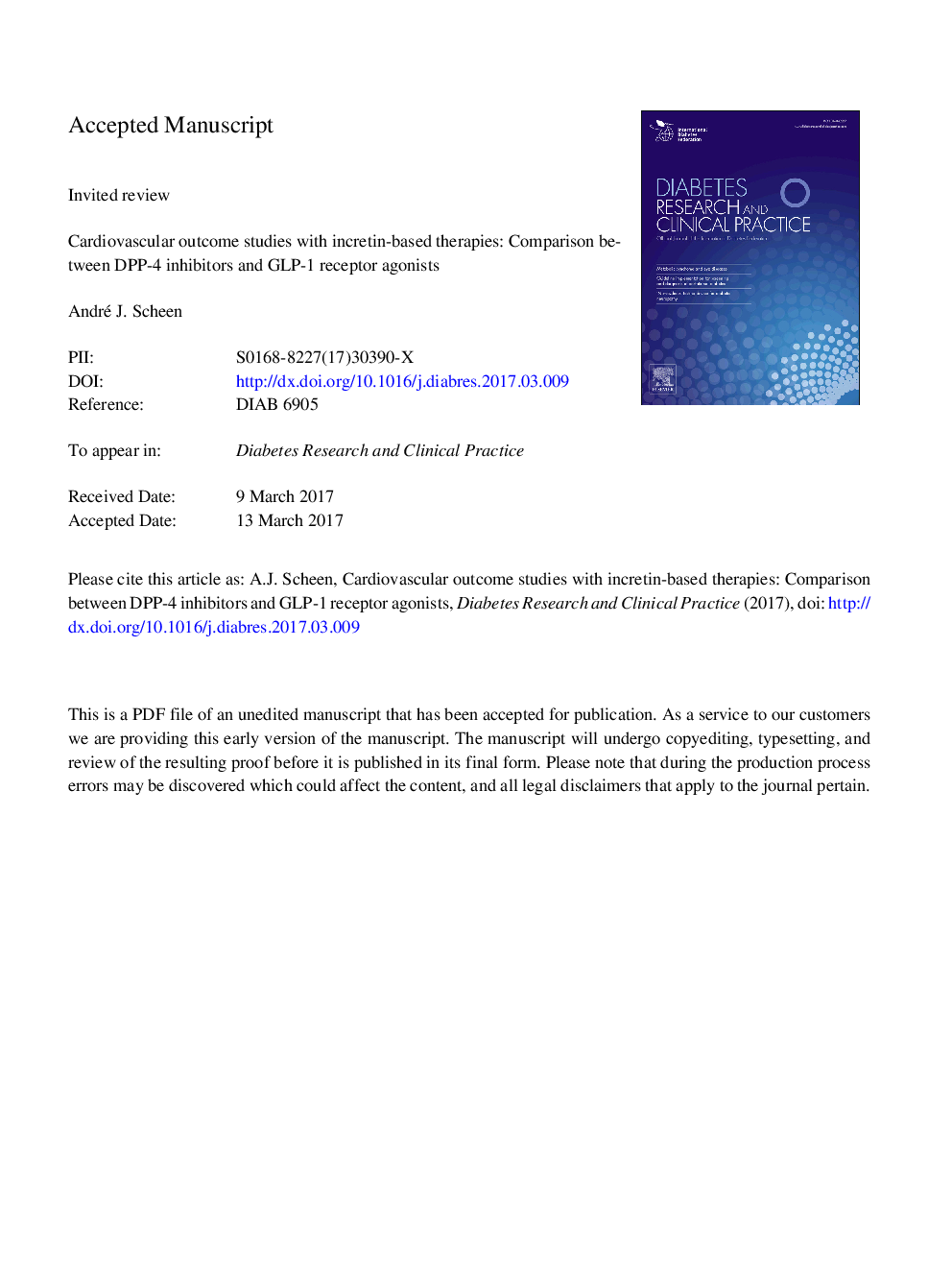| Article ID | Journal | Published Year | Pages | File Type |
|---|---|---|---|---|
| 5587148 | Diabetes Research and Clinical Practice | 2017 | 37 Pages |
Abstract
Dipeptidyl peptidase-4 inhibitors (DPP-4is) and glucagon-like peptide-1 receptor agonists (GLP-1RAs) represent two distinct classes of incretin-based therapies used for the treatment of type 2 diabetes. Non-inferiority versus placebo was shown in large prospective cardiovascular outcome trials in patients with high cardiovascular risk: SAVOR-TIMI 53 (saxagliptin), EXAMINE (alogliptin), and TECOS (sitagliptin); ELIXA (lixisenatide), LEADER (liraglutide) and SUSTAIN 6 (semaglutide). The promises raised by meta-analyses of phase 2-3 trials with DPP-4is were non confirmed as no cardiovascular protection could be evidenced. However, LEADER showed a significant reduction in major cardiovascular events, myocardial infarction, cardiovascular and all-cause mortality in patients treated by liraglutide compared to placebo. These positive results contrasted with the non-inferiority results with lixisenatide in ELIXA. They were partially confirmed with semaglutide in SUSTAIN 6 despite the absence of reduction in cardiovascular mortality. Hospitalisation for heart failure was not increased except with saxagliptin in SAVOR-TIMI 53. The reasons for different outcomes between trials remain largely unknown as well as the precise underlying mechanisms explaining the cardiovascular protection by liraglutide. The clinical relevance of results with DPP-4is and GLP-1RAs is discussed. Ongoing trials with linagliptin and several once-weekly GLP-1RAs should provide new insights into remaining fundamental questions.
Keywords
Related Topics
Life Sciences
Biochemistry, Genetics and Molecular Biology
Endocrinology
Authors
André J. Scheen,
